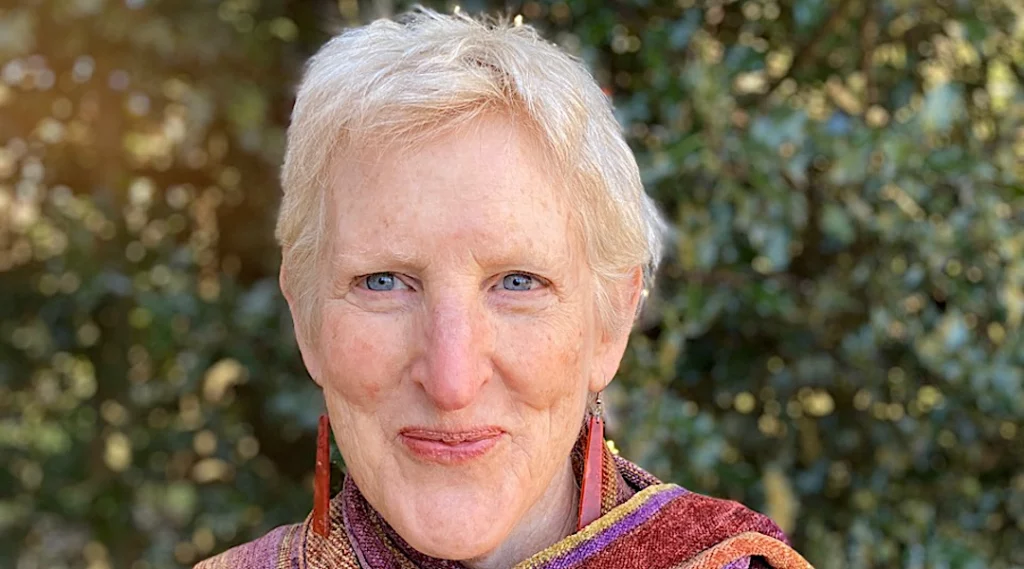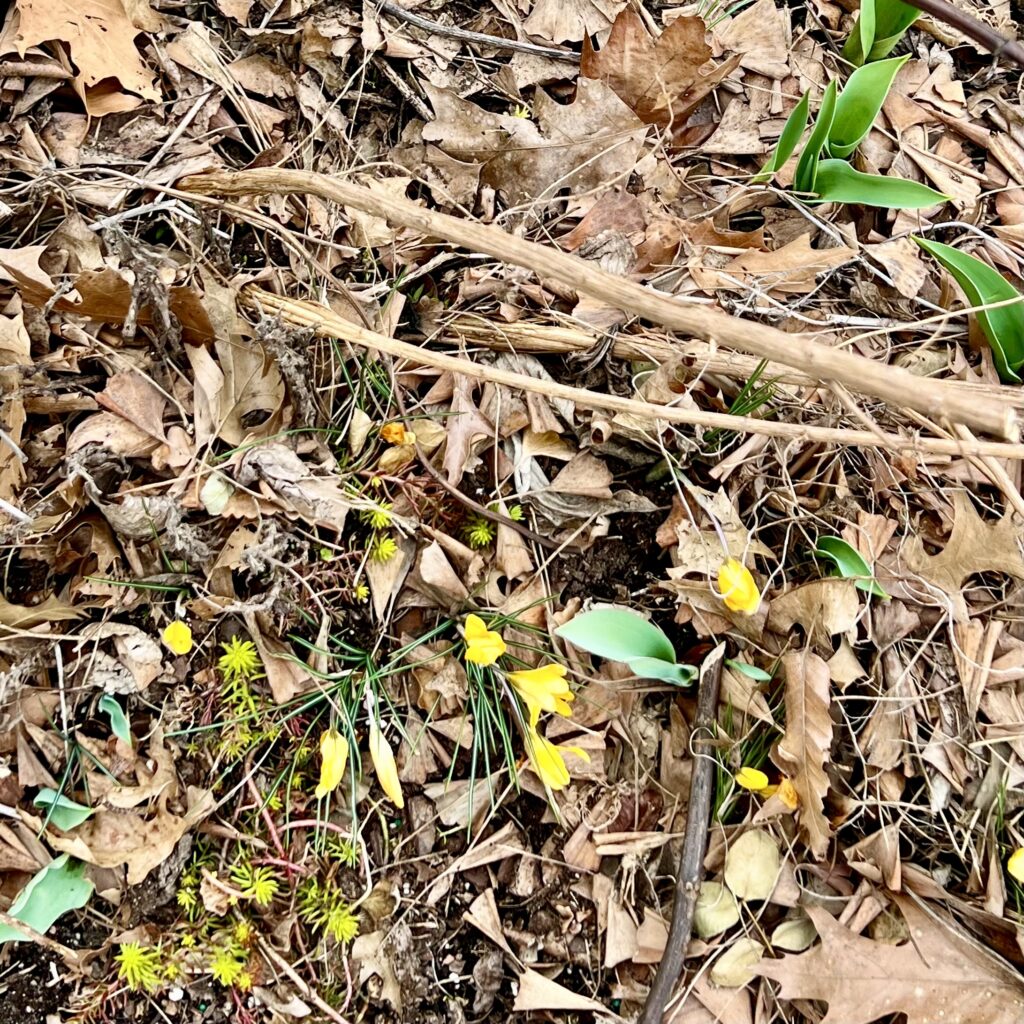
At the Confluence of Ecology & Spirituality, Death & Life

This piece is offered in honor and memory of my beloved teacher, mentor, and friend, Rabbi Ellen Bernstein, z”l, whose love of ecology, nature, science, and Judaism gave birth to an ever growing community of Jews connected deeply to our roots in the wisdom of Earth and our partnership with her and the Divine Abundance. Ellen died, surrounded by love, on Monday morning and was buried yesterday, beneath the soil of an ecosystem she treasured. Her brief illness precluded her book tour, and yet, she had the pleasure of seeing the release of her newest gift to us – Toward a Holy Ecology, Reading The Song of Songs in the Age of Climate Crisis. May her work continue in the hands, minds, and hearts of those of us who knew and loved her, and in generations of people intent on living out a love for the Land through study, spiritual connection, and sustainable community-building. I am so grateful that GJC had already purchased copies of Ellen’s brilliant Passover Haggadah, The Promise of the Land, for our upcoming seder in April (which happens to coincide with Earth Day this year).
My friend Ellen was not always my friend. Before she became my friend, I knew her name well and revered her as a ground-breaking voice in eco-theology. Although she didn’t know it at the time, Rabbi Ellen Bernstein was my muse and mentor – a woman who pursued an intellectual career before listening to a sacred calling to become a rabbi and spiritual leader. And she taught me through her books about how to speak, Jewishly, about environmental issues. Because of Ellen, I was emboldened to draw on my primary experiences of awe on camping, hiking, and rafting trips, as a source of connection to the One. Because of Ellen, I learned how to craft meaningful educational experiences for children and adults in the nascent Jewish community we were growing in Columbus, Ohio. I can still remember sitting on the ground, teary-eyed, reading The Splendor of Creation, Ellen’s gorgeous unfolding of the first seven days in Genesis/B’reishit. As she opens that book, she calls the reader’s attention to the shared root of the Hebrew words “adamah” (earth) and “adam” (human, or more accurately, earthling), a reminder that we are inextricably linked both ecologically and spiritually. This idea still gob-smacks me and fills me with delight.
Ellen Bernstein was my muse ~ a brilliant thinker and author who gave birth to a community of eco-Judaism that felt like home. Her writings, organizing, and educational material was foundational in the late-20th and 21st century movement that speaks deeply to a wide cross-section of folks who live at the confluence of Jewish and environmental values. Her writing was clear and deep, spiritually profound and beautifully accessible.
A river runner, ecologist, and educator, Ellen’s search for spiritual meaning and ethical guidance led her back to her Jewish roots, realizing that Jewish wisdom and literature have deeply ecological resonance. It became her life’s work and legacy to remind us, a diasporic people who have dwelled primarily in urban settings since before the Industrial Revolution, that we are a people of the land, an agrarian people who still mark time by the cycle of the seasons, the harvests, plantings, offerings and necessary resting.
Ellen was a unique voice in the world of eco-Judaism. There was a quiet grace and holy appreciation that accompanied her strong opinions. And she was not an extrovert, a spotlight seeker, or a politically active public-square prophet. Her calling manifested in a more subtle and sustainable pursuit of drawing our attention to our interconnection with earth, one part of an ecosystem of elements, flora, fauna, and the Source. She was fervent in her belief that to set ourselves apart was to completely miss the point. In her own words, “We Jews believe in One God and we share together in one earth. Either way you look at it, theologically or ecologically, we are all connected to one another and to all of nature and the earth’s natural processes. And because we are inextricably bound together, whatever actions we take, whatever thoughts we think, yield consequences in the world.”
In all that she did, Ellen led with her profound love for the natural world. “In the end,” she wrote, “we will save only what we love.” She made it her mission to show us, through word and deed, how to cultivate love and awe for the natural world. And in her last book, she used the sacred love poetry of the Song of Songs to bring us on a journey from brokenness to wholeness with love as the carrier wave. In a world “that extols individualism and undervalues interdependence with each other and with the natural world,” Ellen’s unique voice calls us to rekindle connection to the complex living systems to which we belong. “Learning to love, appreciate and respect the earth and all its systems and inhabitants” she writes, “is not like learning a scientific theory or a historical fact. Our feelings and our values are not founded in rational thinking; rather they come from our direct experiences, our intuitions and the cultures that shape us. They need to be continually nurtured, taught and lived.” Knowing that Ellen comes from a scientific background rather than a religious one, makes her connection to religious literature all the more compelling.
When someone dies, especially when death is sudden and completely unanticipated, we are rocked to our core. The grief is painful, the tears flow, and, in Jewish tradition, we work to bury the dead in the earth as quickly as possible and in a way that allows for a natural decomposition of the organic material of which we are made. Metaphorically, we talk about returning the body to the earth. This week, that idea of returning to the earth felt particularly fitting as I watched her body, wrapped lovingly in a white burial shroud*, be lifted and walked into the elements of the day, a fitting last journey to the gravesite would be by foot for the mourners. That shroud, covered with garden flowers, contained the sacred material that had so beautifully embodied the heart, intellect, and soul of my extraordinary friend, Ellen, the one whom I had texted with just three weeks ago. That shroud, holding the earthling whose soul was already ascending beneath the wings of Shekhinah (the Divine Presence), was being carried a short way to be returned to the earth from which it came.
Today, as I walked home, I breathed in the cool air of early spring, felt the sunshine warming my heart and mood, appreciated the early buds of tall trees, and stopped to take a photo (top) of the bright greens and tiny flowers of new life poking through the dead and decaying leaves of last autumn. In those moments and into this Shabbat, the coming week, month, seasons, and years in which I have the privilege of living upon the earth, I carry with me the profound gratitude of knowing Ellen, and I will continue to weave the lessons she inspired, the connections she strengthened, and our shared love of the earth and Jewish texts, and an eco-theology of cycles and wholeness, balance and beauty, an unfolding of the Source of Blessing in all things. I stand in awe of the cycle of life and how, whether we notice it or choose to walk by, life is always pushing its way up through the dead that nourish its continuity.
Shabbat Shalom,
Rabbi Jessica Shimberg
*edited from pine box to shroud, with gratitude for the loving correction from Betsy Teutsch. I was not able to travel to the funeral and watched via simple zoom feed with poor clarity. Betsy shared, “A gentle correction … She was only wrapped in a white shroud. No coffin at all. It was very visceral, laying that white bag right in the dirt. We covered her with branches and flowers and then … dirt on top. May her memory be for great blessing. Your piece confirms that it is!”